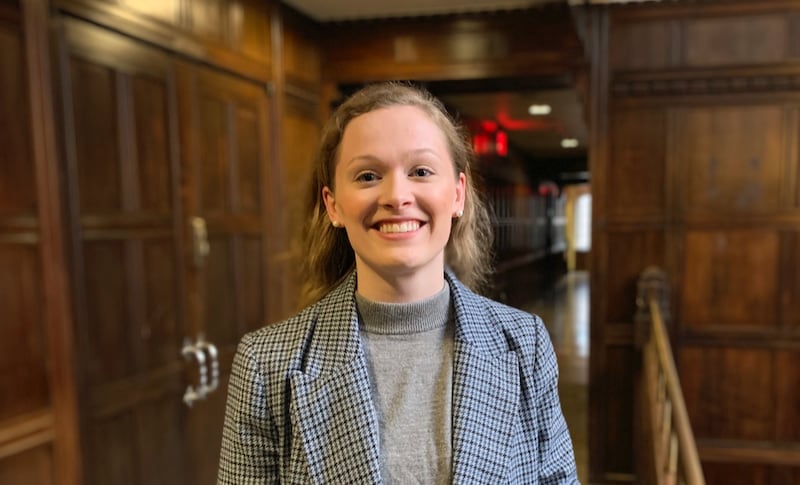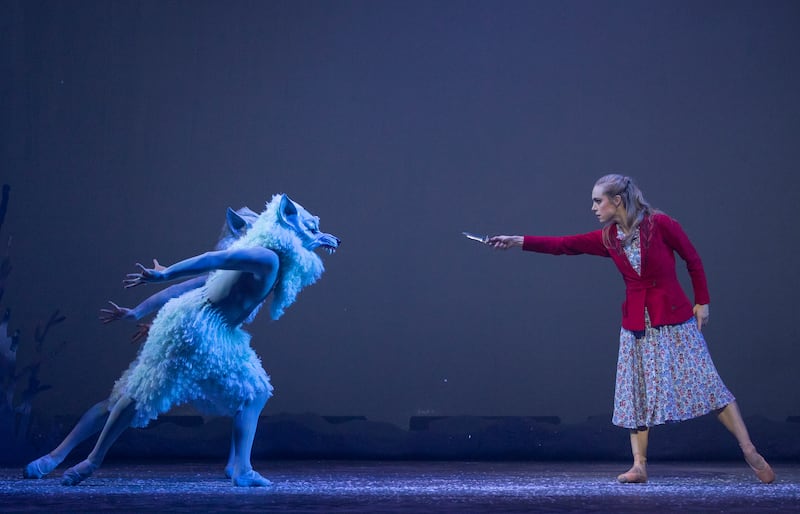A professional ballerina gave up her career to research how dance benefits patients with multiple sclerosis (MS), with the findings hailed as “ground-breaking” by experts.
Emily Davis, 27, worked with the world-renowned Philadelphia Ballet company for six years while also studying for a biology degree at the University of Pennsylvania.
She moved to Scotland in 2021 to start a PhD in dance health, and forged a partnership with Glasgow Caledonian University and the Royal Conservatoire of Scotland (RCS), in collaboration with Scottish Ballet.
While working in America, Ms Davis was a volunteer researcher in neurorehabilitation at the Children’s Hospital of Philadelphia, and she chose to focus on MS in Scotland, which has one of the highest incidence rates of the disease in the world.

More than 15,000 people in Scotland have the neurological illness which can affect the brain and spinal cord. Levels of MS are particularly high in the north of the country.
A study of north-east Scotland found the level per 100,000 people in 2009 to be 229 in Aberdeen, 295 in Shetland and 402 in Orkney.
Ms Davis’ PhD study includes Dance for Multiple Sclerosis – A Systematic Review, which was hailed the sixth most read research paper in the International Journal of MS Care in 2023. Her research was funded with a Thouron scholarship.
She worked with Professor Lorna Paul, a rehabilitation expert in allied health science at Glasgow Caledonian University, and RCS senior lecturer and doctoral degrees co-ordinator, Dr Bethany Whiteside, to demonstrate the feasibility and safety of dance therapy.
Ms Davis also noted improved psychological wellbeing, sense of belonging and enriched social relationships.
She said the research was inspired by English National Ballet’s programme Dance for Parkinson’s, described as a “very well-established global model”, but said applying the same theory to MS was “a novel area of both practice and research”.
Ms Davis said: “When I looked at dance for other neurological conditions, I found that there were only 13 studies on dance for MS, so there was only limited research in this area, and we are aware of really only a handful of dance programmes around the world.
“We know that movement, especially rhythmic movement like dance, can be really beneficial for movement disorders like Parkinson’s disease. Scottish Ballet is at the forefront of dance for MS in the UK and globally, so it’s been the best place to start.

“My research is looking at their SB Elevate classes here in Glasgow, where the programme first began development in 2018, and then looks at their more recently implemented SB Elevate classes further north in Perth and Orkney to find out what benefits the dancers with MS are experiencing.
“I’m also looking at how these classes are being implemented, recognising a city is very different from an island community.
“The end result is really hoping to evidence and understand how these classes work and can support people living with MS, as well as to inspire future research using different creative methods.”
Prof Paul said: “Emily’s ground-breaking research has provided evidence on potential benefits of ballet for people with MS for the first time.
“People with MS can have problems with movement and balance which can be helped with exercise. Ballet is a form of physical activity which may be more expressive, fun and with a stronger social component than traditional forms of rehabilitation.
“Emily’s PhD has been the catalyst for the successful collaboration between Glasgow Caledonian, RCS and Scottish Ballet, and this collaboration will continue to grow and strengthen thanks to Emily’s work.”
Now in the third year of her PhD, Ms Davis is continuing to study the SB Elevate programme, with the support and supervision of Professor Paul and Dr Whiteside, who also sit on the Scottish Ballet health research committee.
Dr Whiteside said: “Emily Davis’ PhD, focused on the perceived impact and experience of dancing for individuals living with multiple sclerosis, through engaging with Scottish Ballet’s Elevate programme, will make a necessary contribution to the limited pool of existing research.”
Scottish Ballet’s senior dance health manager, Lisa Sinclair, said: “Scottish Ballet are delighted to have supported Emily Davis during her innovative Dance for MS PhD study, which makes a significant contribution to the global field of dance for health.”








